A craniotomy is a surgical procedure in which a portion of the skull's bone is removed to reveal the brain. The bone flap is a portion of bone that is removed using specialized equipment. After the brain surgery, the bone flap is temporarily removed and then reinstalled.
To precisely target the area of the brain that has to be treated during some craniotomy operations, computers and imaging (computerized tomography [CT] or magnetic resonance imaging [MRI]) may be used as guides. This method necessitates the use of either a frame attached to the skull or a frameless system with markings or landmarks applied superficially to the scalp.
| Country | Cost | Local_currency |
|---|---|---|
| United Kingdom | USD 13377 - 60000 | 10568 - 47400 |
| Turkey | USD 14704 - 30000 | 443179 - 904200 |
| Spain | USD 25042 - 31000 | 23039 - 28520 |
| United States | USD 26967 - 66935 | 26967 - 66935 |
| Singapore | USD 25000 - 50000 | 33500 - 67000 |
Treatment cost

Types of Craniotomy in Sarvodaya Hospital and Research Centre and its associated cost
| Treatment Option | Approximate Cost Range (USD) | Approximate Cost Range (INR) |
|---|---|---|
| Overall Craniotomy Surgery | 5081 - 10138 | 416685 - 834850 |
| Extended Bifrontal Craniotomy | 3049 - 8133 | 249405 - 667436 |
| Supra-Orbital Craniotomy | 3564 - 7620 | 290516 - 623243 |
| Retro Sigmoid Craniotomy | 4561 - 9102 | 375594 - 750921 |
| Orbitozygomatic Craniotomy | 4567 - 9680 | 375393 - 792095 |
| Translabyrinthine Craniotomy | 4570 - 9639 | 374279 - 790088 |
| Pterional Craniotomy | 4070 - 8601 | 334168 - 707033 |
| Suboccipital Craniotomy | 4043 - 8643 | 333836 - 706407 |
DOCTORS IN 14 SPECIALITIES
FACILITIES & AMENITIES
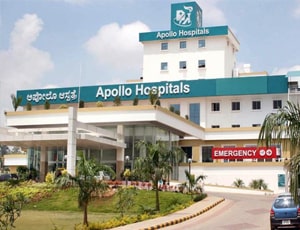
Types of Craniotomy in Apollo Hospitals Bannerghatta and its associated cost
| Treatment Option | Approximate Cost Range (USD) | Approximate Cost Range (INR) |
|---|---|---|
| Overall Craniotomy Surgery | 5543 - 11464 | 454073 - 927892 |
| Extended Bifrontal Craniotomy | 3420 - 9131 | 272128 - 726759 |
| Supra-Orbital Craniotomy | 3946 - 8570 | 327598 - 687723 |
| Retro Sigmoid Craniotomy | 5150 - 9943 | 421737 - 822192 |
| Orbitozygomatic Craniotomy | 5124 - 10812 | 407867 - 892134 |
| Translabyrinthine Craniotomy | 5062 - 10587 | 422752 - 872784 |
| Pterional Craniotomy | 4510 - 9719 | 373788 - 791539 |
| Suboccipital Craniotomy | 4539 - 9668 | 376864 - 772623 |
DOCTORS IN 13 SPECIALITIES
FACILITIES & AMENITIES
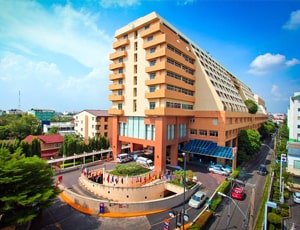
Types of Craniotomy in Vejthani Hospital and its associated cost
| Treatment Option | Approximate Cost Range (USD) | Approximate Cost Range (THB) |
|---|---|---|
| Overall Craniotomy Surgery | 12519 - 22082 | 444632 - 785198 |
| Extended Bifrontal Craniotomy | 9777 - 25243 | 349335 - 894751 |
| Supra-Orbital Craniotomy | 10340 - 22330 | 379840 - 811689 |
| Retro Sigmoid Craniotomy | 12205 - 24929 | 443367 - 893419 |
| Orbitozygomatic Craniotomy | 12387 - 24295 | 443263 - 892229 |
| Translabyrinthine Craniotomy | 12140 - 23598 | 433061 - 838809 |
| Pterional Craniotomy | 10954 - 22696 | 390499 - 796185 |
| Suboccipital Craniotomy | 11026 - 21049 | 404888 - 758466 |

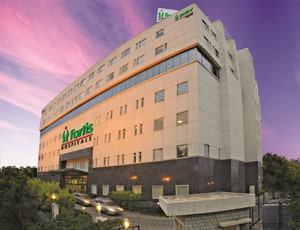
Types of Craniotomy in Fortis Hospital and its associated cost
| Treatment Option | Approximate Cost Range (USD) | Approximate Cost Range (INR) |
|---|---|---|
| Overall Craniotomy Surgery | 5081 - 10171 | 415726 - 836000 |
| Extended Bifrontal Craniotomy | 3052 - 8160 | 249323 - 664480 |
| Supra-Orbital Craniotomy | 3551 - 7648 | 291775 - 623075 |
| Retro Sigmoid Craniotomy | 4571 - 9142 | 375441 - 750082 |
| Orbitozygomatic Craniotomy | 4565 - 9605 | 375756 - 789783 |
| Translabyrinthine Craniotomy | 4583 - 9666 | 375858 - 790835 |
| Pterional Craniotomy | 4075 - 8620 | 332618 - 706542 |
| Suboccipital Craniotomy | 4066 - 8658 | 334240 - 704040 |
DOCTORS IN 12 SPECIALITIES
FACILITIES & AMENITIES
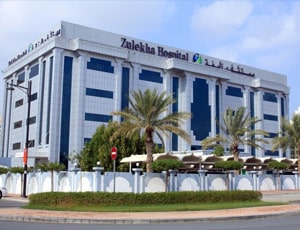
Types of Craniotomy in Zulekha Hospital Dubai and its associated cost
| Treatment Option | Approximate Cost Range (USD) | Approximate Cost Range (AED) |
|---|---|---|
| Overall Craniotomy Surgery | 15425 - 28706 | 56346 - 102603 |
| Extended Bifrontal Craniotomy | 10721 - 27813 | 39598 - 98383 |
| Supra-Orbital Craniotomy | 11542 - 24304 | 41750 - 91089 |
| Retro Sigmoid Craniotomy | 13721 - 27308 | 50486 - 101049 |
| Orbitozygomatic Craniotomy | 13459 - 27790 | 50799 - 98613 |
| Translabyrinthine Craniotomy | 13381 - 28610 | 49841 - 105383 |
| Pterional Craniotomy | 12423 - 26342 | 44412 - 100853 |
| Suboccipital Craniotomy | 12471 - 25001 | 45638 - 95171 |
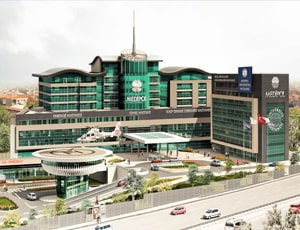
Types of Craniotomy in Medipol Mega University Hospital and its associated cost
| Treatment Option | Approximate Cost Range (USD) | Approximate Cost Range (TRY) |
|---|---|---|
| Overall Craniotomy Surgery | 14880 - 18800 | 444743 - 576507 |
| Extended Bifrontal Craniotomy | 9016 - 19459 | 276484 - 567098 |
| Supra-Orbital Craniotomy | 9437 - 16652 | 288885 - 518413 |
| Retro Sigmoid Craniotomy | 11277 - 19098 | 342493 - 586204 |
| Orbitozygomatic Craniotomy | 11120 - 18511 | 345666 - 568457 |
| Translabyrinthine Craniotomy | 11199 - 18000 | 343764 - 536589 |
| Pterional Craniotomy | 10069 - 16851 | 304753 - 518804 |
| Suboccipital Craniotomy | 10137 - 15761 | 299728 - 479347 |
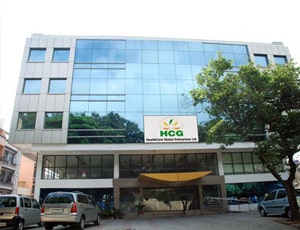
Types of Craniotomy in HCG Kalinga Rao Road and its associated cost
| Treatment Option | Approximate Cost Range (USD) | Approximate Cost Range (INR) |
|---|---|---|
| Overall Craniotomy Surgery | 5063 - 10177 | 414941 - 832322 |
| Extended Bifrontal Craniotomy | 3054 - 8142 | 250334 - 664428 |
| Supra-Orbital Craniotomy | 3541 - 7625 | 292149 - 625311 |
| Retro Sigmoid Craniotomy | 4576 - 9121 | 375111 - 751402 |
| Orbitozygomatic Craniotomy | 4556 - 9687 | 374373 - 794277 |
| Translabyrinthine Craniotomy | 4548 - 9602 | 376207 - 792385 |
| Pterional Craniotomy | 4074 - 8667 | 334165 - 704293 |
| Suboccipital Craniotomy | 4044 - 8621 | 331728 - 704676 |
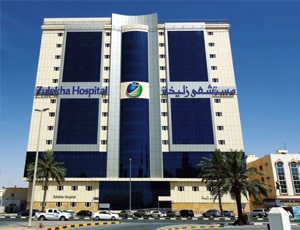
Types of Craniotomy in Zulekha Hospital Sharjah and its associated cost
| Treatment Option | Approximate Cost Range (USD) | Approximate Cost Range (AED) |
|---|---|---|
| Overall Craniotomy Surgery | 15091 - 28645 | 56626 - 102381 |
| Extended Bifrontal Craniotomy | 11093 - 27286 | 39272 - 101823 |
| Supra-Orbital Craniotomy | 11828 - 24608 | 42422 - 89575 |
| Retro Sigmoid Craniotomy | 13546 - 27010 | 48994 - 97772 |
| Orbitozygomatic Craniotomy | 13439 - 26931 | 50769 - 98755 |
| Translabyrinthine Craniotomy | 13784 - 28077 | 50166 - 103627 |
| Pterional Craniotomy | 12280 - 26860 | 45411 - 97895 |
| Suboccipital Craniotomy | 12546 - 25020 | 44467 - 91563 |
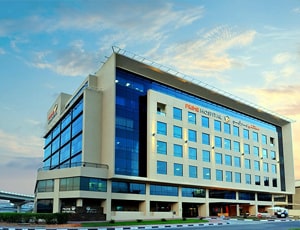
Types of Craniotomy in Prime Hospital and its associated cost
| Treatment Option | Approximate Cost Range (USD) | Approximate Cost Range (AED) |
|---|---|---|
| Overall Craniotomy Surgery | 15031 - 27737 | 56263 - 106132 |
| Extended Bifrontal Craniotomy | 10687 - 27232 | 40604 - 100516 |
| Supra-Orbital Craniotomy | 11543 - 23989 | 42629 - 89043 |
| Retro Sigmoid Craniotomy | 13544 - 26654 | 50437 - 100508 |
| Orbitozygomatic Craniotomy | 13884 - 26799 | 50607 - 101327 |
| Translabyrinthine Craniotomy | 13820 - 28312 | 48929 - 104010 |
| Pterional Craniotomy | 12161 - 27423 | 44534 - 98491 |
| Suboccipital Craniotomy | 12333 - 25804 | 46174 - 92732 |
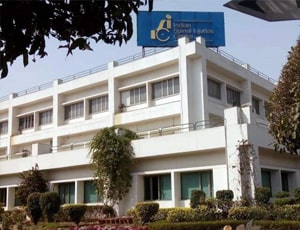
Types of Craniotomy in Indian Spinal Injuries Centre and its associated cost
| Treatment Option | Approximate Cost Range (USD) | Approximate Cost Range (INR) |
|---|---|---|
| Overall Craniotomy Surgery | 5079 - 10103 | 417048 - 834640 |
| Extended Bifrontal Craniotomy | 3050 - 8158 | 250523 - 667754 |
| Supra-Orbital Craniotomy | 3564 - 7641 | 291571 - 621395 |
| Retro Sigmoid Craniotomy | 4586 - 9142 | 375619 - 747112 |
| Orbitozygomatic Craniotomy | 4585 - 9604 | 375134 - 788578 |
| Translabyrinthine Craniotomy | 4546 - 9617 | 376296 - 791477 |
| Pterional Craniotomy | 4064 - 8625 | 334310 - 710524 |
| Suboccipital Craniotomy | 4063 - 8637 | 331861 - 710414 |
DOCTORS IN 2 SPECIALITIES
FACILITIES & AMENITIES
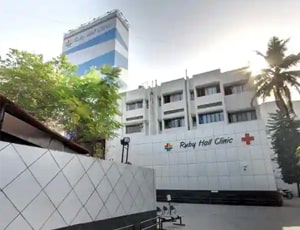
Types of Craniotomy in Ruby Hall Clinic and its associated cost
| Treatment Option | Approximate Cost Range (USD) | Approximate Cost Range (INR) |
|---|---|---|
| Overall Craniotomy Surgery | 4612 - 9482 | 387305 - 770753 |
| Extended Bifrontal Craniotomy | 2822 - 7522 | 231021 - 605696 |
| Supra-Orbital Craniotomy | 3279 - 7065 | 266437 - 582108 |
| Retro Sigmoid Craniotomy | 4200 - 8369 | 340624 - 697371 |
| Orbitozygomatic Craniotomy | 4234 - 8913 | 344902 - 734526 |
| Translabyrinthine Craniotomy | 4198 - 8830 | 345093 - 734010 |
| Pterional Craniotomy | 3694 - 7934 | 304608 - 648580 |
| Suboccipital Craniotomy | 3792 - 8074 | 310705 - 643718 |
DOCTORS IN 13 SPECIALITIES
FACILITIES & AMENITIES
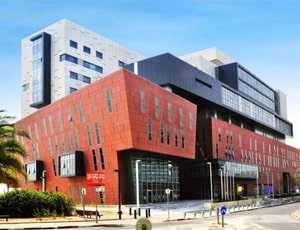
Assuta Hospital located in Tel-Aviv, Israel is accredited by JCI. Also listed below are some of the most prominent infrastructural details:
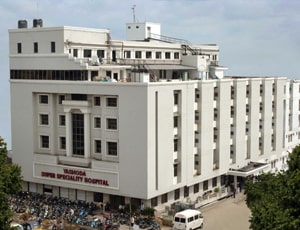
Types of Craniotomy in Yashoda Hospital, Malakpet and its associated cost
| Treatment Option | Approximate Cost Range (USD) | Approximate Cost Range (INR) |
|---|---|---|
| Overall Craniotomy Surgery | 5096 - 10152 | 418177 - 829908 |
| Extended Bifrontal Craniotomy | 3034 - 8095 | 248517 - 663605 |
| Supra-Orbital Craniotomy | 3548 - 7620 | 290650 - 625496 |
| Retro Sigmoid Craniotomy | 4546 - 9122 | 375070 - 747771 |
| Orbitozygomatic Craniotomy | 4578 - 9611 | 373360 - 792346 |
| Translabyrinthine Craniotomy | 4584 - 9638 | 374289 - 791928 |
| Pterional Craniotomy | 4041 - 8655 | 331808 - 704992 |
| Suboccipital Craniotomy | 4047 - 8628 | 333238 - 707459 |
DOCTORS IN 10 SPECIALITIES
FACILITIES & AMENITIES
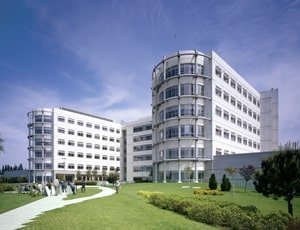
Types of Craniotomy in Anadolu Medical Center and its associated cost
| Treatment Option | Approximate Cost Range (USD) | Approximate Cost Range (TRY) |
|---|---|---|
| Overall Craniotomy Surgery | 14743 - 19475 | 446253 - 567727 |
| Extended Bifrontal Craniotomy | 8835 - 18875 | 272372 - 565923 |
| Supra-Orbital Craniotomy | 9613 - 17183 | 292270 - 504175 |
| Retro Sigmoid Craniotomy | 11164 - 19226 | 340296 - 564845 |
| Orbitozygomatic Craniotomy | 11362 - 18479 | 331876 - 554400 |
| Translabyrinthine Craniotomy | 11075 - 18012 | 345676 - 541468 |
| Pterional Craniotomy | 10051 - 17136 | 302947 - 515770 |
| Suboccipital Craniotomy | 10305 - 15534 | 303052 - 476740 |
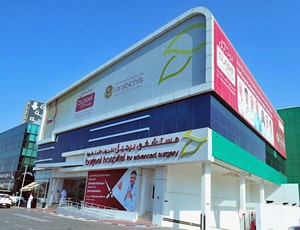
Types of Craniotomy in Burjeel Hospital for Advanced Surgery Dubai and its associated cost
| Treatment Option | Approximate Cost Range (USD) | Approximate Cost Range (AED) |
|---|---|---|
| Overall Craniotomy Surgery | 15461 - 28383 | 56949 - 106218 |
| Extended Bifrontal Craniotomy | 10957 - 27652 | 39659 - 99991 |
| Supra-Orbital Craniotomy | 11609 - 24732 | 42073 - 90183 |
| Retro Sigmoid Craniotomy | 13426 - 26737 | 50429 - 99821 |
| Orbitozygomatic Craniotomy | 13346 - 26898 | 49526 - 98549 |
| Translabyrinthine Craniotomy | 13365 - 28822 | 50132 - 106363 |
| Pterional Craniotomy | 12281 - 26938 | 45422 - 97505 |
| Suboccipital Craniotomy | 12481 - 25382 | 45639 - 92433 |
Craniotomy surgery is one of the most common types of brain surgery conducted to treat a brain tumor. It mainly aims at removing a lesion, tumor, or a blood clot in the brain by opening a flap above the brain to access the targeted area. This flap is removed on a temporary basis and again put in place when the surgery is done. Around 90 percent of the cases of brain tumors are diagnosed in adults aged between 55 and 65. Among children, a brain tumor is diagnosed within an age range of 3 to 12 years.
Craniotomy procedures are conducted with the help of magnetic resonance imaging (MRI) scans to reach the location precisely in the brain that requires treatment. A three-dimensional image for the same is achieved of the brain in conjunction with localizing frames and computers to view a tumor properly. A clear distinction is made between abnormal or tumor tissue and normal healthy tissue and to access the exact location of the abnormal tissue.
In a minimally invasive craniotomy procedure, a burr hole or a keyhole may be created to access the brain to fulfill the following purposes:
When there are complex craniotomies involved, the procedure may be referred to as a skull base surgery. In this kind of surgery, a small portion of the skull is removed from the bottom of the brain. This is the region where delicate arteries, veins, and cranial nerves exit the skull. Complicated planning is done to plan such craniotomies and understand the location of the lesions. This type of approach is usually employed for:
Primary brain tumors are much less common than secondary brain tumors. Primary ones are found to originate very close to the brain itself or in the tissues very close to it, such as the covering membranes of the brain, including the meninges, cranial nerves, pineal, or pituitary gland. It begins with normal cells, which at a later period undergoes some mutational errors in their DNA. The mutation triggers cells to grow and divide at a very high rate while healthy cells keep dying around it. This results in a mass of abnormal cells which gives rise to a tumor. Unlike primary tumors, the secondary tumors begin as cancer elsewhere and spread to the brain.
No matter what the goal of the surgery is, it is best to ensure that the incision is made to address the intracranial lesion keeping some principles in mind. A wide variety of intracranial processes can be done via a craniotomy with a different variety of incisions. Some of these variations include frontal craniotomy, pterional craniotomy, temporal craniotomy, decompression craniectomy, and suboccipital craniotomy.
Ask your healthcare adviser for the best multiple options and choose the one that meets your expectations